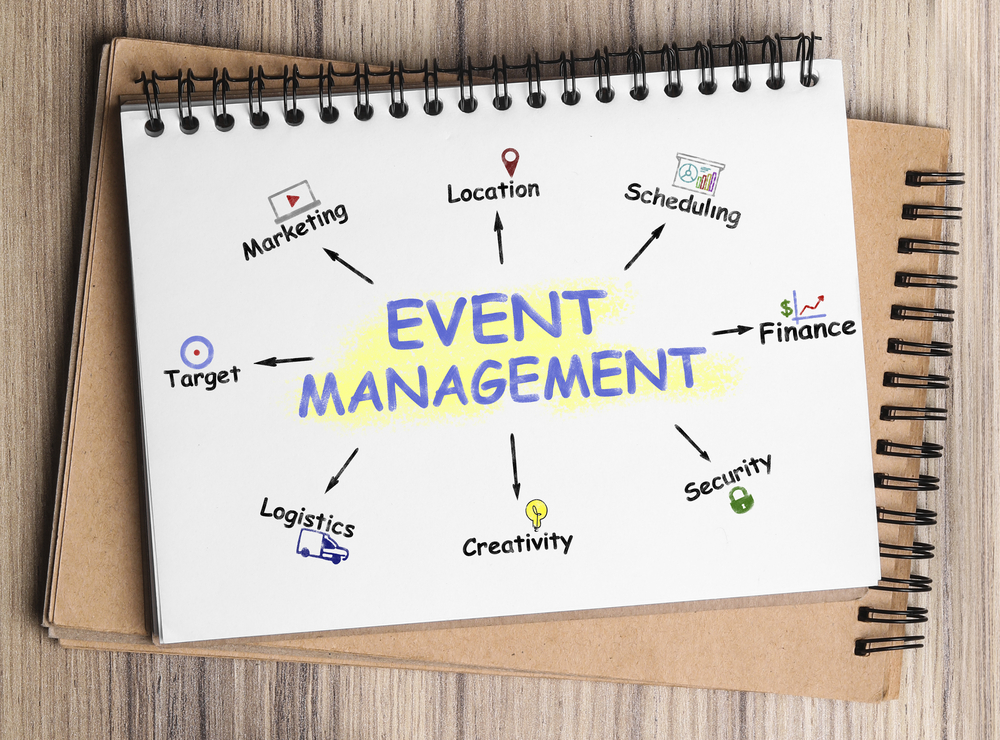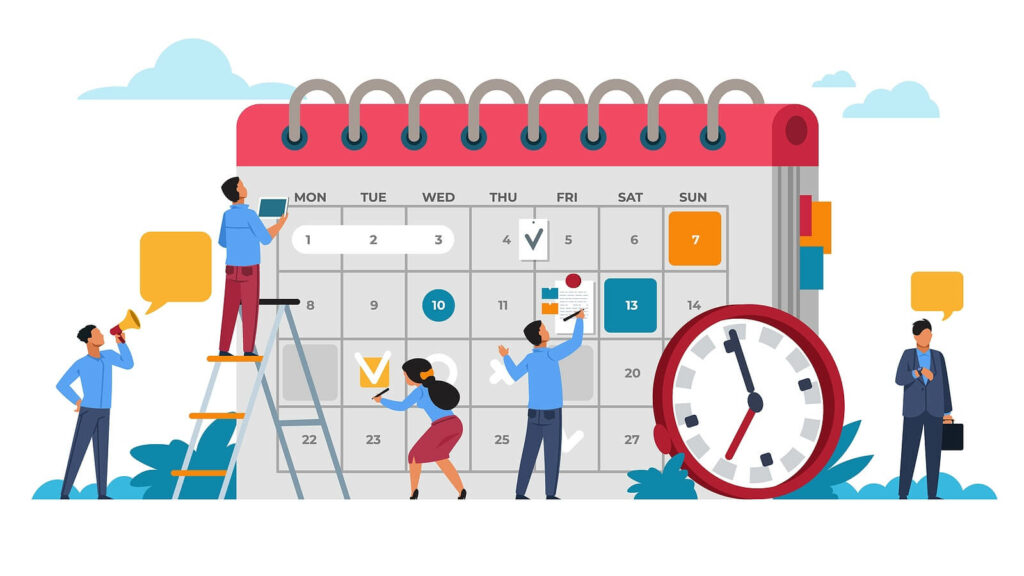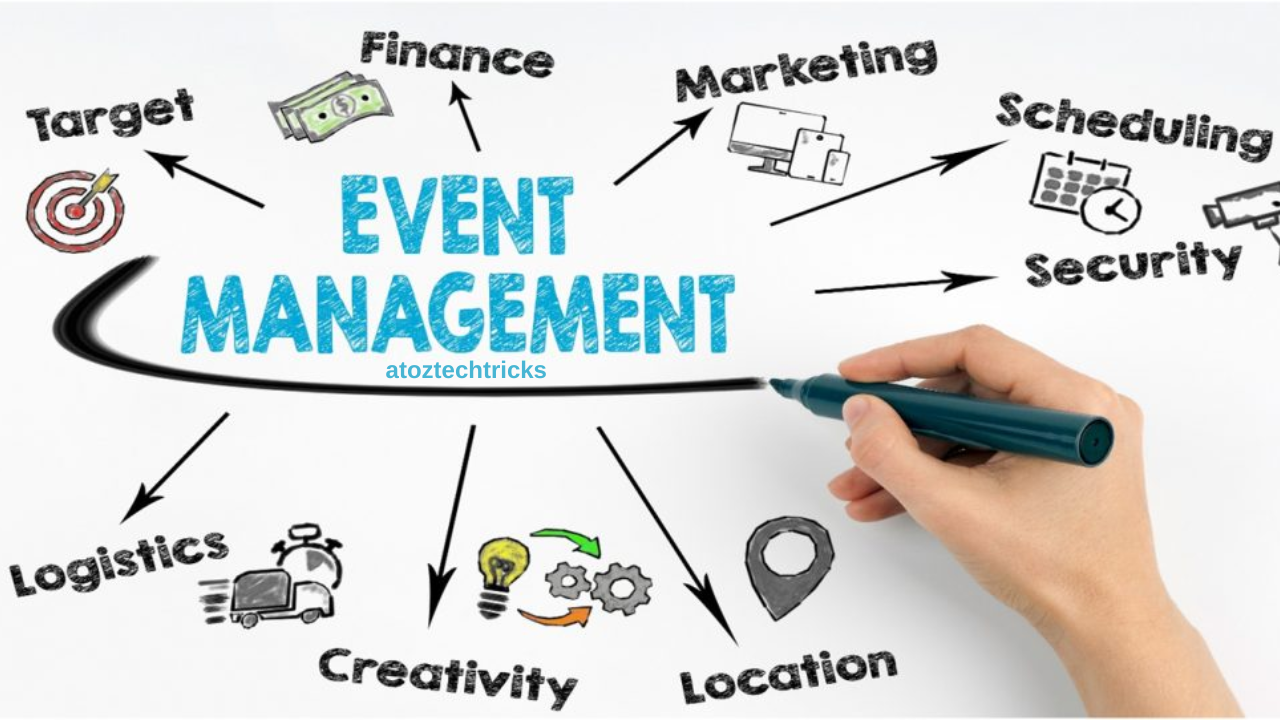Event Planning and Management: A Comprehensive Guide
Event planning and management is a multifaceted process that involves coordinating various aspects of an event to ensure its success. Whether it’s a corporate conference, a wedding, a charity gala, or a music festival, the principles of event planning and management remain consistent. The success of any event hinges on meticulous planning, effective communication, and seamless execution. This guide delves into the key components of event planning and management, providing insights and strategies to help you create memorable and successful events.
Understanding Event Planning and Management
Event planning and management is the process of organizing, coordinating, and executing an event from start to finish. It involves several stages, including concept development, budgeting, scheduling, vendor coordination, and post-event evaluation. The goal is to ensure that all aspects of the event align with the client’s objectives and that the event runs smoothly.
Starting a Party Equipment Rental Business: A Comprehensive Guide
Key Components of Event Planning
1. Concept Development
The first step in event planning is developing a concept that aligns with the event’s purpose. This involves understanding the client’s objectives, target audience, and desired outcomes. The concept sets the tone for the event and influences all subsequent planning decisions.
Elements to Consider:
- Theme: The theme of the event should reflect the purpose and audience. For example, a corporate event might have a professional theme, while a charity gala could be more glamorous.
- Format: Decide on the format of the event—whether it will be in-person, virtual, or hybrid. Each format has its own set of requirements and challenges.
- Venue: The venue should complement the theme and accommodate the expected number of attendees. It should also have the necessary facilities and accessibility features.
2. Budgeting
Budgeting is a critical component of event planning. It involves estimating the costs associated with various aspects of the event and allocating funds accordingly. A well-planned budget ensures that all necessary elements are covered without overspending.
Budgeting Tips:
- Identify Key Expenses: Common expenses include venue rental, catering, entertainment, marketing, and staffing. Allocate funds for each category based on priority.
- Contingency Fund: Set aside a portion of the budget for unexpected expenses. This could be around 10-15% of the total budget.
- Cost-Saving Strategies: Consider cost-saving strategies such as negotiating with vendors, choosing an off-peak event date, or opting for a smaller venue.
3. Scheduling and Timeline
Creating a detailed timeline is essential for keeping the event on track. The timeline should outline all tasks and deadlines from the planning phase to the day of the event. It should also include contingency plans in case of unforeseen delays.
Key Timeline Considerations:
- Milestones: Identify key milestones, such as venue booking, invitations sent, and vendor confirmations.
- Deadlines: Set realistic deadlines for each task and ensure that all stakeholders are aware of them.
- Day-of Schedule: Create a detailed schedule for the event day, including setup, registration, program flow, and teardown.
4. Vendor Coordination
Coordinating with vendors is a crucial part of event planning. Vendors provide essential services such as catering, entertainment, photography, and decorations. Building strong relationships with reliable vendors can significantly impact the success of your event.
Vendor Coordination Tips:
- Research and Selection: Research potential vendors and select those with a proven track record and good reviews. Consider getting recommendations from industry peers.
- Contracts and Agreements: Ensure that all agreements with vendors are documented in contracts that clearly outline the scope of work, payment terms, and deadlines.
- Communication: Maintain regular communication with vendors leading up to the event. Confirm details such as delivery times, setup requirements, and special requests.

The Event Planning Process
The event planning process can be broken down into several key stages, each with its own set of tasks and considerations. Understanding these stages will help you manage the planning process effectively.
1. Pre-Planning Stage
The pre-planning stage involves setting the foundation for the event. This includes defining the event’s purpose, identifying stakeholders, and establishing the initial budget and timeline.
Tasks:
- Define Objectives: Clarify the purpose of the event and the goals you want to achieve. This could be anything from raising brand awareness to celebrating a milestone.
- Identify Stakeholders: Identify all stakeholders involved in the event, including clients, sponsors, attendees, and vendors.
- Initial Planning Meeting: Hold an initial planning meeting with key stakeholders to discuss the event’s objectives, budget, and timeline.
2. Planning Stage
The planning stage is where the bulk of the work takes place. This stage involves organizing all the details of the event, from selecting a venue to coordinating with vendors.
Tasks:
- Venue Selection: Choose a venue that fits the event’s theme, budget, and logistical requirements.
- Catering: Select a catering service that aligns with the event’s theme and budget. Consider the dietary restrictions and preferences of the attendees.
- Entertainment: Book entertainment that suits the event’s tone and audience. This could include live music, a DJ, or guest speakers.
- Marketing and Promotion: Develop a marketing plan to promote the event. This could include social media campaigns, email invitations, and press releases.
3. Execution Stage
The execution stage is when the event takes place. This stage requires careful coordination to ensure that everything runs smoothly.
Tasks:
- Setup: Oversee the setup of the venue, including decorations, seating arrangements, and technical equipment.
- Registration: Ensure that the registration process is efficient and that attendees are welcomed and directed appropriately.
- Event Management: Monitor the event’s progress and address any issues that arise. This includes coordinating with vendors, managing the schedule, and ensuring that the program runs on time.
4. Post-Event Stage
The post-event stage involves evaluating the event’s success and gathering feedback from stakeholders. This stage is crucial for identifying areas of improvement for future events.
Tasks:
- Teardown: Oversee the teardown of the venue and ensure that all equipment and decorations are removed.
- Feedback: Collect feedback from attendees, vendors, and other stakeholders. This could be done through surveys or post-event meetings.
- Post-Event Report: Create a post-event report that summarizes the event’s outcomes, including attendance, budget, and feedback. This report can be used to inform future event planning.
Event Management Tools and Technologies
In today’s digital age, event planners have access to a wide range of tools and technologies that can streamline the planning and management process. These tools can help with everything from budgeting and scheduling to marketing and attendee engagement.
1. Event Management Software
Event management software is designed to help planners manage all aspects of an event in one place. These platforms often include features for budgeting, scheduling, vendor management, and attendee registration.
Popular Event Management Software:
- Eventbrite: Eventbrite is a popular platform for creating and managing events. It offers tools for ticketing, marketing, and attendee management.
- Cvent: Cvent is a comprehensive event management platform that offers solutions for event planning, venue sourcing, and attendee engagement.
- Whova: Whova is an event management app that provides tools for event promotion, registration, and networking.
2. Project Management Tools
Project management tools can help event planners stay organized and on track. These tools allow you to create task lists, assign responsibilities, and monitor progress.
Popular Project Management Tools:
- Trello: Trello is a visual project management tool that uses boards and cards to organize tasks. It’s great for managing event timelines and assigning tasks to team members.
- Asana: Asana is a task management tool that allows you to create detailed project plans and track progress. It’s ideal for managing complex events with multiple stakeholders.
- Monday.com: Monday.com is a flexible project management platform that can be customized to suit the needs of any event. It offers features for task management, team collaboration, and deadline tracking.
3. Communication Tools
Effective communication is key to successful event planning. Communication tools can help you stay in touch with team members, vendors, and clients throughout the planning process.
Popular Communication Tools:
- Slack: Slack is a messaging platform that allows you to create channels for different aspects of the event. It’s great for real-time communication with team members and vendors.
- Zoom: Zoom is a video conferencing tool that can be used for virtual meetings with clients, vendors, or team members. It’s also useful for hosting virtual events.
- Microsoft Teams: Microsoft Teams is a collaboration platform that combines chat, video meetings, and file sharing. It’s ideal for managing communication across large event-planning teams.
Common Challenges in Event Planning and Management
Event planning and management is not without its challenges. From budget constraints to last-minute changes, planners must be prepared to handle a variety of obstacles. Here are some common challenges and strategies for overcoming them.
1. Budget Constraints
Staying within budget is one of the most common challenges in event planning. Unexpected expenses can quickly add up, making it difficult to stay on track.
Strategies:
- Prioritize Spending: Identify the most important aspects of the event and allocate funds accordingly. For example, if the venue and catering are top priorities, you may need to cut back on decorations or entertainment.
- Negotiate with Vendors: Don’t be afraid to negotiate with vendors to get the best possible rates. You can also ask for discounts or bundled services.
- Track Expenses: Keep a close eye on all expenses throughout the planning process. Use budgeting software or spreadsheets to track spending and identify areas where you can cut costs.
2. Last-Minute Changes
Last-minute changes, such as venue cancellations or speaker dropouts, can throw a wrench in even the best-laid plans. Being prepared to handle these changes is essential.
Strategies:
- Have a Backup Plan: Always have a contingency plan in place for key aspects of the event, such as the venue, catering, and entertainment. This could include having a list of backup vendors or alternative venues.
- Stay Flexible: Be prepared to adapt to changes and make quick decisions. Flexibility is key to managing unexpected challenges.
- Communicate with Stakeholders: Keep all stakeholders informed of any changes and how they will be addressed. Clear communication can help prevent misunderstandings and ensure everyone is on the same page.
3. Attendee Engagement
Engaging attendees is crucial for the success of any event. However, it can be challenging to keep attendees interested and involved, especially during long or virtual events.
Strategies:
- Interactive Content: Incorporate interactive elements into the event, such as live polls, Q&A sessions, and networking opportunities. This can help keep attendees engaged and encourage participation.
- Personalization: Tailor the event experience to the interests and preferences of the attendees. This could include personalized invitations, customized content, or targeted networking opportunities.
- Use Technology: Leverage technology to enhance the attendee experience. For example, event apps can provide real-time updates, interactive maps, and personalized agendas.

The Importance of Post-Event Evaluation
Post-event evaluation is a critical aspect of event management that is often overlooked. This process involves analyzing the success of the event and gathering feedback from stakeholders. The insights gained from post-event evaluation can be used to improve future events.
1. Measuring Success
Measuring the success of an event involves evaluating whether the event met its objectives. This could include metrics such as attendance numbers, revenue generated, or attendee satisfaction.
Key Metrics:
- Attendance: Track the number of attendees and compare it to the expected turnout. High attendance is often a good indicator of a successful event.
- Revenue: If the event was ticketed, calculate the total revenue generated. Compare this to the event budget to determine profitability.
- Engagement: Measure attendee engagement through metrics such as social media activity, survey responses, and participation in interactive sessions.
2. Gathering Feedback
Gathering feedback from attendees, vendors, and other stakeholders is essential for understanding what worked well and what could be improved.
Feedback Methods:
- Surveys: Send out post-event surveys to attendees and ask for their opinions on various aspects of the event, such as the venue, content, and overall experience.
- Interviews: Conduct interviews with key stakeholders, such as clients and vendors, to get in-depth feedback on the event’s success.
- Social Media Monitoring: Monitor social media platforms for mentions of the event. Attendees often share their experiences online, providing valuable insights into what they enjoyed and what could be improved.
3. Post-Event Reporting
Creating a post-event report is a valuable exercise that can help you document the event’s outcomes and identify areas for improvement.
Report Elements:
- Event Overview: Provide a summary of the event, including the purpose, objectives, and key outcomes.
- Budget Analysis: Compare the actual expenses to the budget and identify any discrepancies. Highlight areas where costs were higher or lower than expected.
- Feedback Summary: Summarize the feedback gathered from attendees and stakeholders. Identify common themes and areas for improvement.
- Recommendations: Based on the feedback and analysis, provide recommendations for future events. This could include suggestions for improving attendee engagement, optimizing the budget, or addressing logistical challenges.
Event planning and management is a dynamic and rewarding field that requires a combination of creativity, organization, and problem-solving skills. By understanding the key components of event planning, utilizing the right tools and technologies, and effectively managing challenges, you can create successful and memorable events. Whether you’re planning a small private gathering or a large corporate conference, the principles outlined in this guide will help you navigate the complexities of event planning and achieve your goals.





Post Comment